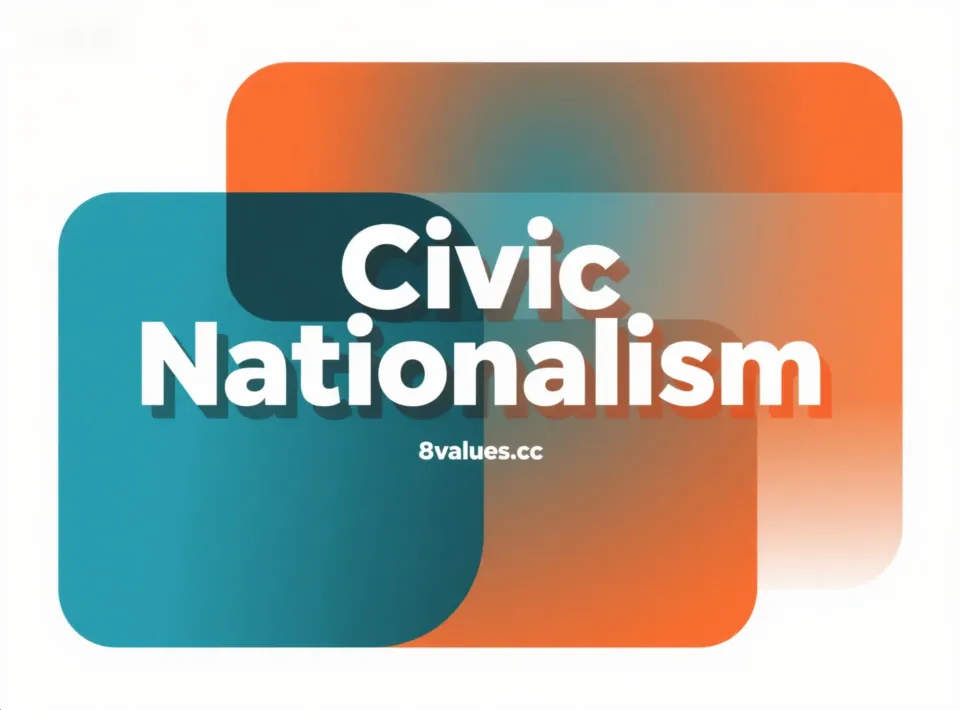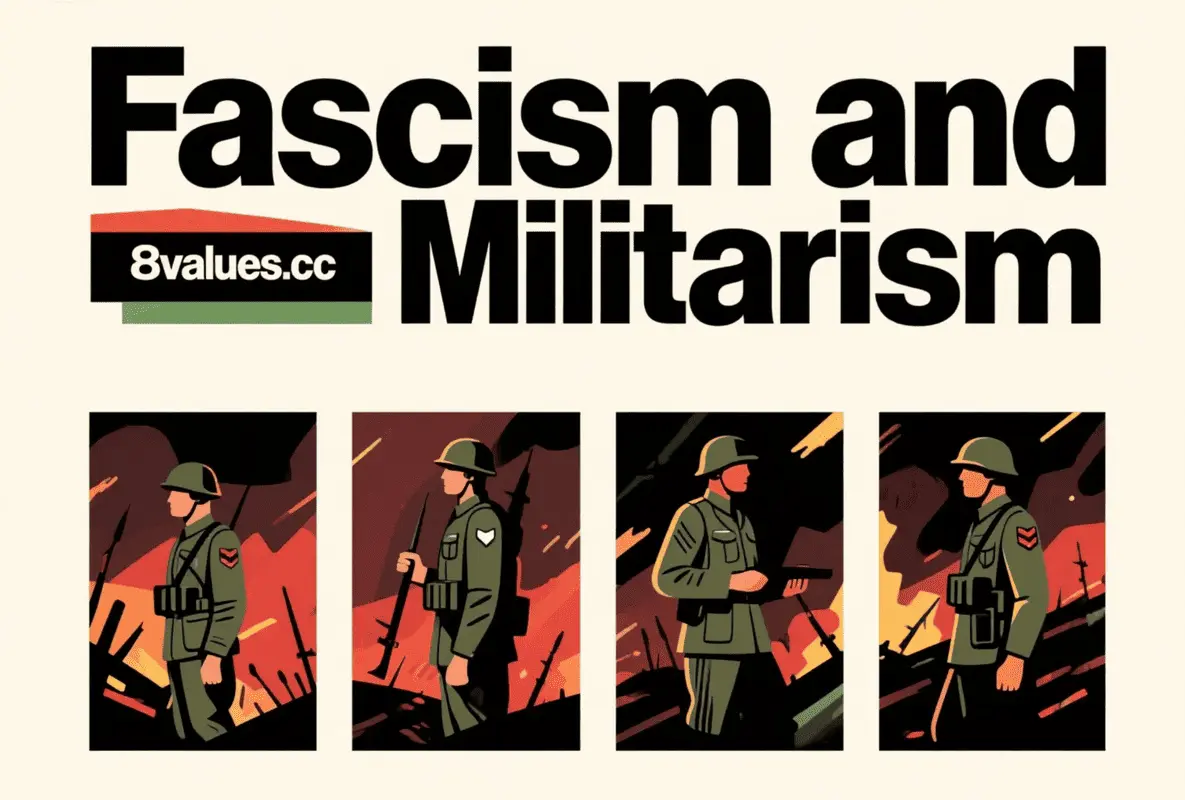Anarcho-Communism | 8values Interpretation of ideological ideology in political tests
This article deeply analyzes Anarcho-Communism, covering its core principles, historical development, economic theory and philosophical differences, and combines 8Values political tests and ideological dimensions to help users understand free will socialism and related 8values test results.
Anarcho-Communism is an important branch of anarchism, emphasizing the establishment of a communist society without state and coercive power. It advocates the publicization of means of production, implements direct democracy through workers' committees and horizontal networks, and distributes wealth based on the principle of "everyone can do their best and get what they need". Anage communism opposes all class systems and state power, aiming to establish a free and equal social system. This article will combine the political ideological dimensions tested by 8Values to comprehensively analyze the concepts, history, economic theory and practical cases of Anachial communism.
The definition and core principles of Anachial communism (8 values Ideological analysis)
Anage communism is a political philosophy whose core objectives include:
- Abolishing the state and hierarchy : Emphasizing that social management is based on free union rather than coercive power.
- Publicity of means of production : All wealth belongs to all members of society, and distribution follows the principle of "everyone does his best and get what he needs".
- Oppose wage labor and capitalism : do not agree with the wage or profit system, advocate collectivization of labor products.
- Liberal Democratic Network : Manage social affairs through workers’ committees and community autonomous organizations.
Combined with the 8Values political test, Anage communism is typically manifested as extreme left libertarian Left, which is extremely inclined to collective and publicize in the economic dimension and pursues minimal government intervention in the political dimension.
The relationship between Anache communism and other thoughts (8values political positioning)
- Relationship with anarchism
Anage communism is an important branch of anarchism, emphasizing the concept of free will and advocating the establishment of a stateless communist society. It belongs to the representative idea of extreme left liberalism in the 8Values test. - The difference from collective anarchism
Collective anarchism advocates collective ownership of means of production and distributing remuneration according to the amount of labor, while Anathi communism further advocates the full publicization of labor products, denies private ownership, and emphasizes demand-oriented distribution. - Relationship with Marxism
Anage communism emerged at the same time as Marxism, but opposed the dictatorship of the proletariat. Bakunin predicted that a revolution in power would eventually form a new ruling class, so Anathi communism emphasized decentralization and autonomy.
For more information about the comparison of different political ideologies and the 8Values test dimensions, please refer to the 8Values political spectrum analysis .
The historical development and main figures of Anachial communism (8 values test historical background)
- Early pioneers
- Early Christian communities : Anatrix communist tendencies, emphasizing sharing and mutual assistance.
- Diggers : English egalitarian community, advocating the sharing of land and resources.
- Baron Louis Rahontan : Describes the cooperative community of Native Americans, without hierarchy and country.
- Sirvan Mareschar : Philosophers during the French Revolution advocated "sharing the products of the earth."
- Joseph Déjacque : The first self-proclaimed libertarian, advocated that labor products are public property.
- First International and Carlo Caffero
The Italian branch of the First International promotes the collectivization of labor products and emphasizes that meeting everyone's needs is the only production and consumption rule. - Peter Kropotkin
Theoretical core: Cooperation is better than competition, and it advocates that "houses, fields, and factories are public property", and must provide basic living for 5 hours a day, and develop arts and sciences in the rest of the time. - Historical practice cases
- Makhno Movement (1918-1921) : Ukrainian Revolution, deeply influenced by Kropotkin.
- Spanish Revolution (1936) : Controlling Barcelona and most rural areas and implementing land collectivization.
- Manchu-Korean Federation (1929) : Northeast region autonomy attempt.
- The 1960s Land-Digging Counter-Cultural Movement : Establishing small, monetary-free communities and providing free supplies.
Read more about the different ideological historical backgrounds in the 8Values test, please visit the 8Values Ideology Collection .
The economic theory and practice of Anachial communism (8values economic dimension)
- Abolishing currency and wage labor : Wealth distribution is based on individual needs, and labor is free to choose.
- Labor Value and Distribution : Pay attention to the living rights of all participating producers, rather than quantification of labor contributions.
- Ownership and right to use : Negate absolute private ownership, intellectual property and rent systems are regarded as exploitation.
Combined with the 8Values test, Anage communism appears as far-left collectivism in the economic dimension, emphasizing public resource allocation and economic freedom.
Philosophical Differences and Human Nature of Anager Communism (8values Free Will and Social Beliefs)
Anage communists do not agree with the assumption of "human nature is lazy and selfish" and believe that social culture and modes of production shape behavioral tendencies.
- Emphasize the evolutionary trend of mutual assistance and cooperation
- Support individual freedom and social equality
- High scores in 8Values tests as libertarianism and social welfare tendencies
Criticism and Challenges on Anage Communism (8 values Political Risk Analysis)
The main criticisms include:
- Humans have difficulty in autonomy : states are seen as essential for survival
- Utopian nature : over-reliance on collective collaboration, ignoring conflict and external threats
- Scale and federalism issues : Small communities are easy to achieve autonomy, but it is difficult to achieve cross-regional
Nevertheless, the idea of communism emerged many times in history, providing theoretical support for various social movements and the interpretation of 8Values test results.
For more critical and challenging analysis, see the 8Values Political Testing Blog article .
Summary with 8Values Test Application
Anage Communism, as the representative of the extreme left libertarian Left of the 8Values test, emphasizes:
- Abolish the state and private ownership system
- Economic and social equality
- Free union and autonomy
- Cooperation is better than competition
By participating in the 8Values online test , users can evaluate their political tendencies and understand their scores on the dimensions of economic freedom-collectivism and individual freedom-authoritative control , thereby better understanding the positioning of Anacid communism and other ideologies.






